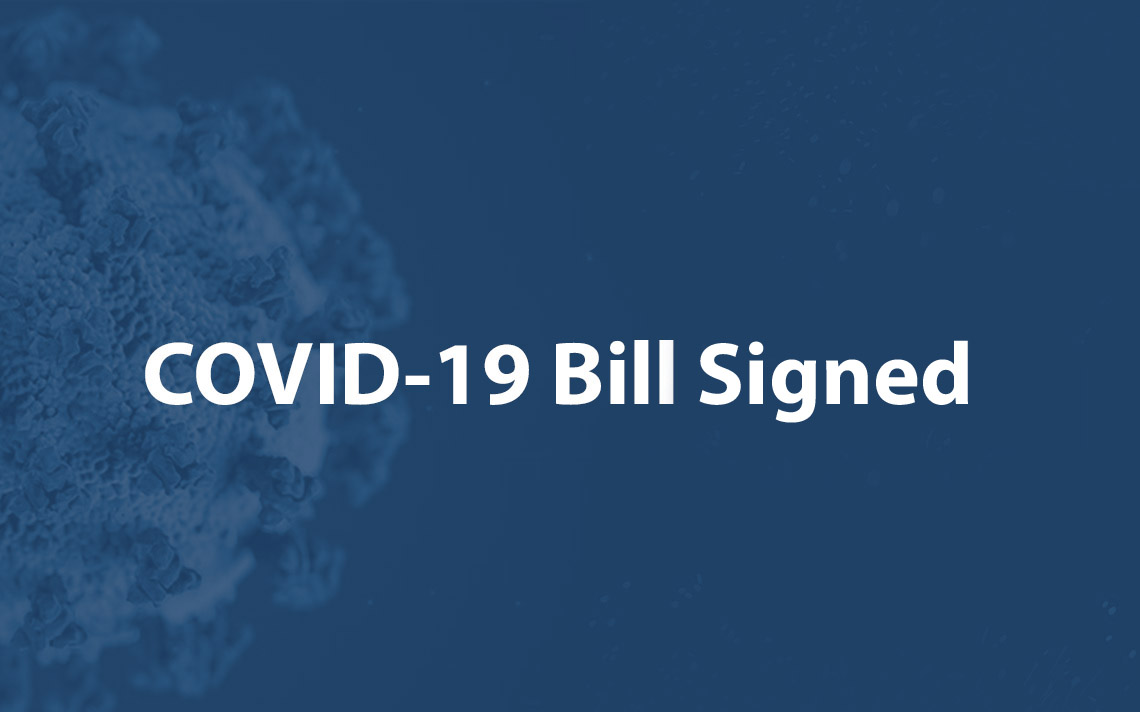On December 21, 2020, Congress passed a $900 billion COVID-19 relief bill and President Trump signed the bill into law on December 27, 2020. The bill includes the following:
Stimulus Checks. The stimulus checks will be up to $600 per person for individuals earning $75,000 per year or less and married couples earning $150,000 per year or less, with an additional $600 for each dependent under 18 years of age living in the same household. A family of four (two adults, and two dependent children in the same house) can expect to receive $2,400.
Federal Unemployment Compensation. Starting after December 26 and ending March 14, 2021, the federal unemployment compensation (FPUC) supplement will be restored at $300 per week.
Second Draw PPP Loans and Simplification of PPP Loan Process. Creates a second loan from the Paycheck Protection Program, called a “PPP second draw” loan for smaller and harder-hit businesses, with a maximum loan amount of $2 million.
Clarification of Tax Treatment of Paycheck Protection Program Loans. The bill clarifies that gross income does not include any amount that would otherwise arise from the forgiveness of a Paycheck Protection Program (PPP) loan. Additionally, deductions are allowed for otherwise deductible expenses paid with the proceeds of a PPP loan that is forgiven. Tax basis and other attributes of the borrower’s assets will also not be reduced as a result of the loan forgiveness. This provision is effective as of the date of the enactment of the CARES Act. The provision provides similar treatment for Second Draw PPP loans, effective for tax years ending after the date of enactment of the provision.
Clarification of Tax Treatment of Certain Loan Forgiveness and Other Financial Assistance Under the Coronavirus Relief Legislation. This provision in the bill clarifies that gross income does not include forgiveness of certain loans, emergency EIDL grants, and certain loan repayment assistance, each as provided by the CARES Act. It also allows deduction of expenses paid for by these types of loans (in a similar manner to the PPP Loan program). The provision provides similar treatment for Targeted EIDL advances and Grants for Shuttered Venue Operators, effective for tax years ending after the date of enactment of the provision.
Extension of Credits for Paid Sick and Family Leave. The provision extends the refundable payroll tax credits for paid sick and family leave, enacted in the Families First Coronavirus Response Act, through the end of March 2021. It also modifies the tax credits so that they apply as if the corresponding employer mandates were extended through the end of March 2021. This provision is effective as if included in FFCRA.
Extension of Certain Deferred Payroll Taxes. On August 8, 2020, the President of the United States issued a memorandum to allow employers to defer withholding employees’ share of Social Security taxes from September 1, 2020 through December 31, 2020, and required employers to increase withholding and pay the deferred amounts ratably from wages and compensation paid between January 1, 2021 and April 31, 2021. Beginning on May 1, 2021, penalties and interest on deferred unpaid tax liability will begin to accrue.
The provision extends the repayment period through December 31, 2021. Penalties and interest on deferred unpaid tax liability will not begin to accrue until January 1, 2022. The Deferred Payroll Taxes is optional for employees and employees.
Meal and Entertainment Expenses:
Client meals will temporarily in 2021 and 2022 qualify as 100% deductible (up from 50% prior to the bill). This was added to the bill to benefit restaurants and small businesses, although it is unclear whether most businesses will resume in person dining with clients any time soon.

